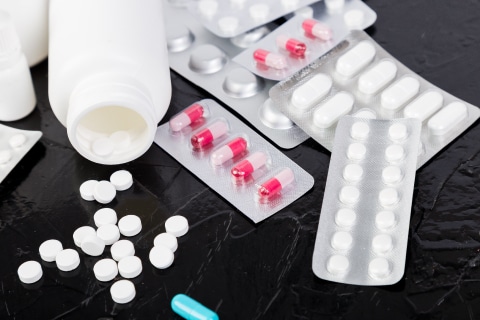Introduction to Drug Addiction
Drug addiction is a condition where a person cannot stop using a substance even though it is causing harm to their body and life. It is a complex condition that affects the brain and behavior, leading to an inability to control the use of legal or illegal drugs or medication. Addiction can cause serious problems for individuals, including health issues, relationship breakdowns, job loss, and legal troubles. It also affects society through higher healthcare costs, increased crime, and lost productivity.
Addiction can happen to anyone regardless of their background or reasons for starting to use substances. People must understand that addiction is not a choice or a sign of weakness but a health issue that needs care and treatment. Recognizing the problem is the first step toward getting help and recovering.
Stimulant Addiction
Stimulants are drugs that increase the nervous system’s activity and make a person feel more awake, alert, and energetic. These drugs can be prescribed for health problems like attention deficit hyperactivity disorder (ADHD) but are also found illegally. They affect the brain by increasing certain chemicals that make people feel good. However, this can lead to addiction as people start to rely on these drugs to feel normal or happy.
Common stimulants that can lead to addiction include:
- Cocaine: A powerful and illegal drug that gives a short but intense feeling of happiness.
- Methamphetamine: Also known as meth, it is a highly addictive drug that can quickly lead to dependence and health problems.
Using these drugs can lead to serious health issues like heart problems, mental health issues, and even death. It is important to get help if you or someone you know cannot stop using stimulants.
Opioid Addiction
Opioids are a type of medication that is used to relieve pain. They work by lowering the number of pain signals your body sends to your brain and also change how your brain responds to pain. Doctors prescribe them for short-term relief after surgery or for chronic pain. But opioids can be very addictive, and using them can lead to addiction even when they are taken as prescribed.
When a person becomes addicted to opioids, they may:
- Take more medication than prescribed.
- Feel unable to stop using the medication even if they want to.
- Experience withdrawal symptoms when not taking the drug.
This addiction can lead to the use of illegal opioids like heroin because it is cheaper and easier to get than prescription medication. Opioid addiction is a serious health crisis that needs immediate attention and treatment.
Prescription Drug Addiction
Prescription drug addiction is not only about opioids. It can also involve other medications that are prescribed for valid health issues but are misused. This includes sedatives that are used for sleep problems and anti-anxiety medications that help with stress and anxiety. These medications can be addictive and lead to misuse because they make a person feel relaxed and calm.
The risks of misusing prescription medications include:
- Developing an addiction that can be hard to overcome.
- Experiencing harmful side effects like memory problems, low blood pressure, and even overdose.
- Having withdrawal symptoms when trying to quit.
It is important to take prescription medications only as directed by a healthcare professional and to get help if you or someone you know is misusing these drugs.
Cannabis Addiction
Cannabis, also known as marijuana, is often seen as less harmful than other drugs, but it can still lead to addiction. This is sometimes called a cannabis use disorder. While many people use cannabis without becoming addicted, some develop a dependency that affects their life and health.
Signs of cannabis addiction include:
- Using more cannabis over time to get the same effect.
- Having cravings and withdrawal symptoms like moodiness, sleep problems, and a decrease in appetite when not using it.
- Continuing to use cannabis even when it causes problems at work, school, or with family.
Understanding the risks associated with cannabis use is important, and those struggling with addiction should seek professional help.
Alcohol Addiction
Alcohol addiction, also known as alcoholism, is a condition where a person cannot control their use of alcohol despite the negative effects it has on their life. It is a serious problem that can take over a person’s life, making it hard for them to function without drinking. People with alcohol addiction may feel like they cannot start their day or deal with problems without having a drink.
Signs of alcohol addiction include:
- Drinking alone or in secret.
- Feeling the need to drink to feel good or normal.
- Experiencing withdrawal symptoms like shaking, nausea, or anxiety when not drinking.
The long-term effects of alcohol addiction can be serious and include health problems like liver disease, heart problems, and an increased risk of cancer. It can also lead to problems with work, school, and relationships. Getting help for alcohol addiction is important because the longer it goes untreated, the more damaging it can be.

Depressant Addiction
Depressants are substances that slow down the brain and the central nervous system. They are often used to treat conditions like anxiety and sleep disorders because they can make a person feel calm and sleepy. However, depressants can be addictive, and misusing them can lead to serious health issues.
Types of depressants that are commonly misused include:
- Benzodiazepines: Medications like Valium and Xanax used to treat anxiety and panic disorders.
- Barbiturates: Older types of medication used for anxiety and sleep problems.
Misusing depressants can lead to addiction and can also increase the risk of overdose, especially when taken with other substances like alcohol. It is important to only use these medications as prescribed by a healthcare professional.
The Effects of Hallucinogens and Dissociative Drugs
Hallucinogens and dissociative drugs are substances that change the way a person sees, hears, tastes, smells, or feels. These drugs can make a person see or hear things that are not there or feel disconnected from their body. They include drugs like LSD, psilocybin mushrooms, and PCP.
While these substances can lead to psychological addiction, where a person feels like they need the drug to deal with life or feel normal, they are less likely to lead to physical addiction. However, the psychological effects can be powerful and can include:
- Changes in how a person thinks and feels.
- Increased risk of mental health problems.
- Confusing thoughts and a mix-up of reality and fantasy.
It is important to understand these risks and to seek help if you or someone you know is struggling with the use of these substances.
Addiction to Inhalants
Inhalants produce chemical vapors that can be inhaled to induce a psychoactive, or mind-altering, effect. They are found in household products like glues, paint thinners, and gasses. Inhalants are often one of the first drugs that young people misuse because they are easy to find in the home.
The dangers of inhalant addiction include:
- Immediate risk of sudden death from heart failure or asphyxiation.
- Long-term damage to the brain, nerves, liver, and kidneys, even with just a single use.
- The possibility of developing a strong psychological dependence on the feeling of being “high.”
Inhalant addiction is particularly dangerous because the substances are toxic and not meant for human consumption. The effects can be unpredictable and can cause lasting harm. If you suspect someone is misusing inhalants, it is crucial to get them help right away.

Conclusion: The Path to Understanding Addiction
In conclusion, understanding the different types of drug addiction is important for recognizing the signs and getting help. Whether it’s the energy-boosting stimulants, pain-relieving opioids, mood-changing depressants, or reality-altering hallucinogens and inhalants, each type of drug addiction has its own set of challenges and risks. Addiction affects not just the person using the drugs but also their families and friends.
It’s crucial to remember that addiction is a health condition, and with the right support and treatment, recovery is possible. It is important for anyone struggling with drug use to seek help as soon as possible. The sooner one gets help, the better the chances are for a return to a healthier life.



